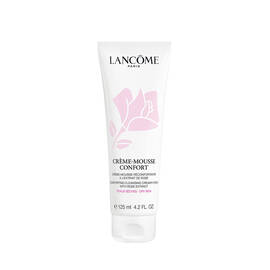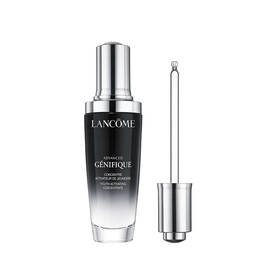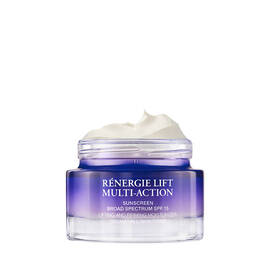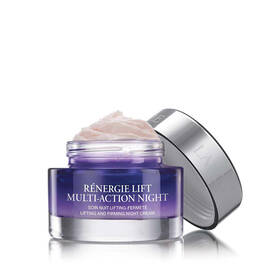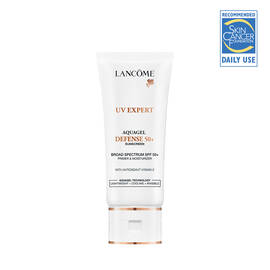Ultimate Guide to Your Skin Barrier
What you should know about helping to protect & repair your skin barrier with ingredients like hyaluronic acid & antioxidants. Our products can help with visible dryness, wrinkles & more.

From skin dryness to wrinkles, there’s a common denominator amongst skin concerns: your skin barrier. Think of your skin barrier as your body’s first defense against the world, be it environmental aggressors, microbes or allergens.1 At the same time, your skin barrier also keeps good stuff in — namely, moisture. But some external factors can damage the skin barrier, leaving your skin vulnerable and setting the stage for skin inflammation. Here’s why taking care of your skin barrier is so important.
What is the skin barrier?
The skin barrier, or epidermal barrier, is the outermost portion of your stratum corneum. Simply put, it’s the top layer of skin. The skin barrier is made of cells and lipids. Think of your skin barrier as a wall, with cells being the bricks and the lipids as mortar.
What does the skin barrier do?
The skin barrier is in charge of a lot: For starters, it maintains proper skin hydration and pH, defends against oxidative stress and keeps bacteria at bay. When the skin barrier is taken care of, skin looks smooth and feels firm.
What are some causes of a damaged skin barrier?
There are internal and external factors behind the skin barrier. Let’s start with internal. First, your genetic makeup may be that your skin just doesn’t produce enough key lipids, such as ceramides, to keep your skin barrier hydrated and performing optimally — which can then lead to skin dryness. Aging can also lead to a damaged skin barrier, as skin typically becomes thinner and drier with age.
Then, there are the external factors that cause a damaged skin barrier. That includes exposure to severe weather conditions, such as cold weather (which explains why your skin may feel dry in the winter) as well as your skincare routine. That means saying goodbye to bad skincare habits like over-cleansing and over-exfoliating. If your cleanser leaves your skin feeling squeaky-clean and tight, that’s a good sign that it may be stripping moisture from your skin barrier and time to switch products. Exfoliating too frequently, or with exfoliants that are too harsh for your skin type, can also impair your skin barrier function.
What are some of the consequences of a damaged skin barrier?
When the skin barrier is compromised, it allows moisture to escape more easily — a process known as trans-epidermal water loss. That could leave your skin appearing dehydrated, which may give it a rough, dry texture and exaggerate the appearance of lines and wrinkles.
A damaged skin barrier also leads to a rise in inflammation in the skin, which research shows may noticeably increase signs of aging, such as fine lines and wrinkles, saggy skin, skin dryness, and more.2 Inflammation is also a factor in a number of skin concerns — which, by the way, is why acne and rosacea are known as inflammatory skin conditions. That said, a damaged skin barrier can lead to skin dryness and dehydration, redness, itchiness, flaking, or even breakouts.
The ideal ingredients to help support the skin barrier
Not all moisturizing ingredients are created equal. We recommend looking for these ingredients in any serum or moisturizer for face to help give a damaged skin barrier the support it craves.
Hyaluronic Acid: It’s a humectant best known for its ability to hold up to 1000 times its weight in water. Since a damaged skin barrier comes with trans-epidermal water loss, which can lead to skin dryness, using products formulated with hyaluronic acid could help with any deficit in hydration your skin may be experiencing.
Bifidus Prebitoic: Bifidus Prebiotic (or Bifidus Extract) Known to support a favorable environment for good bacteria that is present on the skin’s surface Bifidus Extract uses Biotechnology – a process to obtain high-performance ingredients from extracting fractions of bacteria, yeast, plant cells and enzymes. Bifidus Prebiotic helps protect the skin by strengthening the natural skin barrier.
Antioxidants: Oxidative stress — the process in which free radicals damage both the skin barrier and proteins like collagen and elastin — can compromise the skin barrier. Antioxidants, such as vitamin C, help to neutralize these free radicals and protect the integrity of the skin barrier.3
How to fix a damaged skin barrier
These steps could help fortify and support your skin’s moisture barrier, for skin that appears healthy and smooth.
- Choose a gentle cleanser that’s also moisturizing, such as Crème Mousse Confort
- Use a serum that supports and strengthens the skin barrier. In the daytime, apply Advanced Genifique Face Serum, which is formulated with Hyaluronic Acid, Vitamin C, and Bifidus Prebiotic both day and night.
- Apply a moisturizer, of course. Rénergie Lift Multi-Action Day Cream contains hyaluronic acid — as does Rénergie Lift Multi-Action Night Cream for your nighttime skincare routine.
- During the day, always wear sunscreen, such as UV Expert Aquagel Sunscreen, to help defend against oxidative stress from sunlight and take other sun protection measures.
Learn tips on how to keep your skin barrier strong and resilient.
1 https://www.ncbi.nlm.nih.gov/pmc/articles/PMC5608132/

